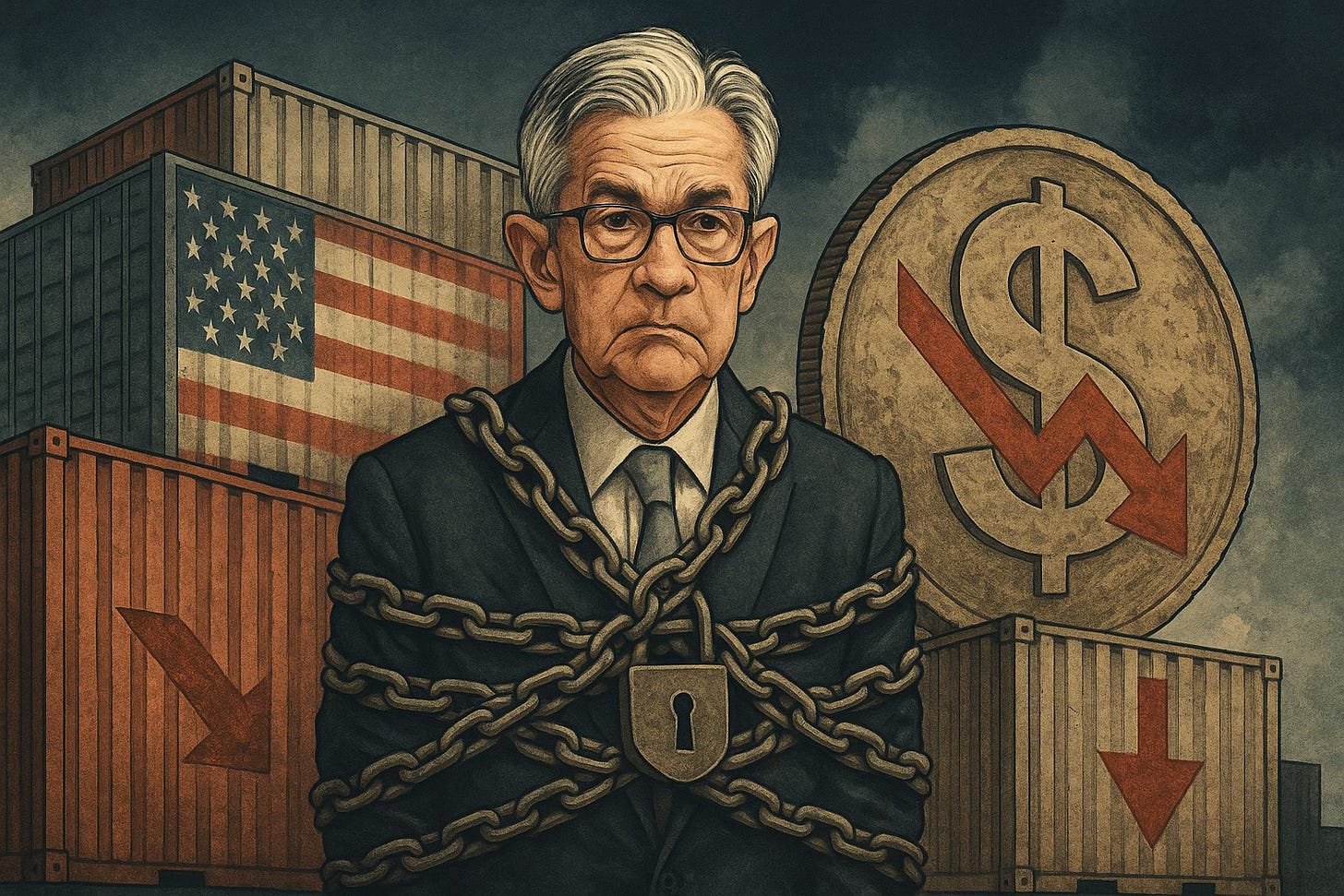The Fed Watches
They see the fire. They choose not to act.
"We expect a meaningful amount of inflation to arrive in coming months." — Jerome Powell
The Fed held rates steady today. Again. But the real story isn't what Powell did. It's what he can't do.
Jerome Powell walked into the press conference carrying the weight of an impossible mandate. The Fed kfedept rates at 4.25 to 4.5 percent for the fourth meeting in a row.
Powell has warned before that tariffs cause inflation. But here's the kicker. Once supply chains break and prices reset higher, they don't magically float back down when the political winds shift. The Fed knows this. They're choosing to let it happen anyway.
Think about the absurdity. The institution supposedly responsible for price stability is openly telling you prices will rise, and they plan to do nothing about it. Their only options are bad: crush the economy with higher rates, or watch inflation eat away at your purchasing power. They picked door number two.
Powell was careful not to blame Trump directly, of course. He talked about "supply and demand in the labor market" and kept his tone upbeat while forecasting your financial pain. Classic Fed doublespeak. Sound reassuring while admitting defeat.
The contradiction is everywhere. They claim to be "data dependent" while making predictions about future inflation. They call their stance "restrictive" while holding rates at what used to be considered easy money levels. They talk about fighting inflation while expecting it to rise.
Despite supposed internal disagreements, today's vote was unanimous. Either Powell has achieved miraculous consensus, or dissent is being quietly managed. More likely, when all your choices suck, agreement becomes easier.
Here's what Powell won't say: the Fed has lost control. Trade policy is driving prices now, not interest rates. The central bank that once moved markets with a raised eyebrow is now reacting to tweets about tariffs. They've gone from setting expectations to managing damage.
"We will make a smarter decision if we wait a couple of months," Powell said. The Fed is betting that tariffs will ease or their impact won't be as brutal as expected. Both are terrible bets.
Markets see through this. Traders have already priced out September rate cuts.
When Powell talks about "meaningful inflation," he means families choosing between groceries and gas. When he mentions staying restrictive despite economic weakness, he means keeping people unemployed to fight price pressures created by someone else's policies.
The Fed's vaunted independence has quietly died. Powell may serve until 2026 on paper, but his policy space disappeared the moment tariffs became the main economic driver. The real decisions are being made on Truth Social at 3 AM, not in the Eccles Building.
Today wasn't about monetary policy. It was about admitting powerlessness while pretending otherwise. And we're all going to pay for it.


